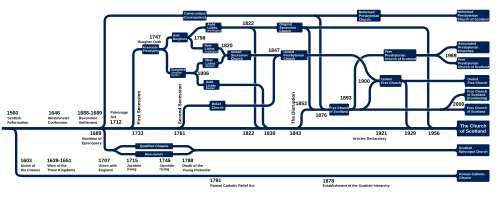
William Garden Blaikie FRSE was a Scottish minister, writer, biographer, and temperance reformer.
The United Presbyterian Church (1847–1900) was a Scottish Presbyterian denomination. It was formed in 1847 by the union of the United Secession Church and the Relief Church, and in 1900 merged with the Free Church of Scotland to form the United Free Church of Scotland, which in turn united with the Church of Scotland in 1929. For most of its existence the United Presbyterian Church was the third largest Presbyterian Church in Scotland, and stood on the liberal wing of Scots Presbyterianism. The Church's name was often abbreviated to the initials U.P.

Ebenezer Erskine was a Scottish minister whose actions led to the establishment of the Secession Church.

The Anti-Burghers were opponents of the Burgher Oath on theological grounds.

Thomas M'Crie was a Scottish biographer and ecclesiastical historian, writer, and preacher born in the town of Duns, and educated at the University of Edinburgh. He became the leading minister of the Original Secession Church. His work: "Life of Knox" (1813) was a means of vindicating the Scottish reformer John Knox who was a unpopular figure at the time. It was followed by a "Life of Andrew Melville" (1819). Melville was Knox's successor as the leader of the Reformers in Scotland. M'Crie also published histories of the Reformation in Italy and Spain. He received an honorary degree of D.D. in 1813, the first Secession minister to receive such an award.

Thomas M'Crie was a Presbyterian minister and church historian. He was a Scottish Secession minister who joined the Free Church of Scotland and served as the Moderator of the General Assembly to that church 1856/57.
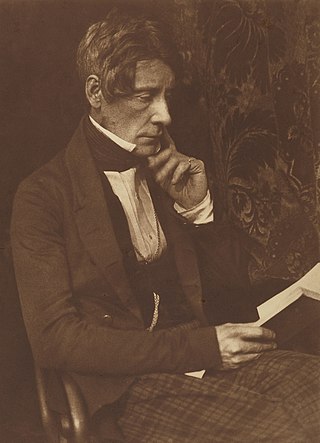
John Duncan, also known as 'Rabbi' Duncan, was a minister of the Free Church of Scotland, a missionary to the Jews in Hungary, and Professor of Hebrew and Oriental Languages at New College, Edinburgh. He is best remembered for his aphorisms.

The First Secession was an exodus of ministers and members from the Church of Scotland in 1733. Those who took part formed the Associate Presbytery and later the United Secession Church. They were often referred to as Seceders.
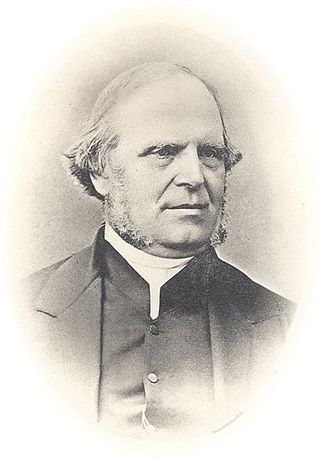
Patrick Fairbairn was a Scottish Free Church minister and theologian. He was Moderator of the General Assembly 1864/65.
Robert Balmer (1787–1844), was successively a minister of the Burgher Seceder, New Licht Burgher Seceder and United Associate Synod of the Secession Churches in Scotland.
Archibald Bruce (1746–1816), was a Scottish theological writer.

James Fisher (1697–1775) was one of the founders of the Scottish Secession church. He was born at Barr, on 23 January 1697, the second son of Thomas Fisher, minister of Rhynd. He was educated at University of Glasgow. He was licensed by the Presbytery of Perth on 31 October 1722 and subsequently called and ordained on 23 December 1725. He dissented and joined with his father-in-law Ebenezer Erskine in his appeal and complaint to the Assembly of 1733. He was one of the four original members of the Associate Presbytery founded at Gairney Bridge on 6 December 1733. He was deposed by the General Assembly on 15 May 1740, but continued to preach in the parish church till 13 August 1741, when he was forcibly ejected on a sheriff's warrant. He then preached in a tent on Kinclaven brae during the time he remained in the district. On 8 October 1741 he became minister of Shuttle Street Associate Congregation, Glasgow. He was deposed by the Associate (Antiburgher) Synod on 4 August 1748 over the question of the Burgess Oath. He was appointed Professor of Divinity by the Associate (Burgher) Synod in 1749. He died on 28 September 1775.
In the Scottish church of the 18th and 19th centuries, a burgher was a person who upheld the lawfulness of the burgess oath.

John Scott Porter (1801–1880) was an Irish biblical scholar and Unitarian minister.

William Lindsay (1802–1866) was a Scottish minister of the United Presbyterian Church.
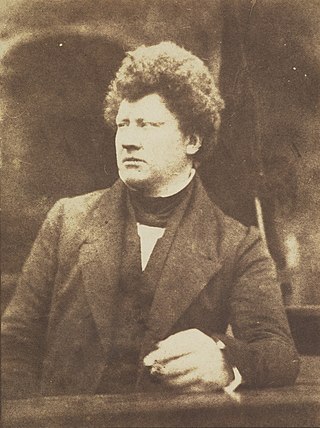
William Cunningham was a Scottish theologian and co-founder of the Free Church of Scotland. He was Moderator of the Free Church in 1859.
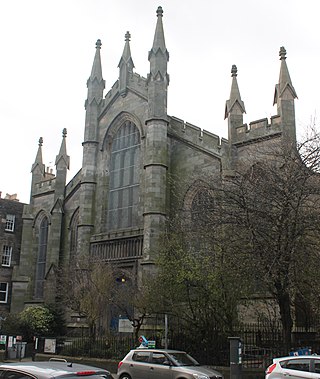
The Southside Community Centre is a community centre in the Southside, Edinburgh, Scotland, United Kingdom. The centre opened in 1986 and occupies the former Nicolson Street Church, which was completed in 1820.

John Reid was a Presbyterian minister from Scotland who was also active in England and Australia. Born in Ayrshire, he was ordained into the United Secession Church in 1829, but later led independent and Burgher churches. He joined the established Church of Scotland in 1839, and in 1845 took over an expatriate congregation in Liverpool, England. Reid immigrated to Australia in 1852, living in Melbourne until 1858 and then in Sydney. He left the Church of Scotland and for a while ministered in John Dunmore Lang's schismatic sect, eventually ending his career at a non-denominational Bethel Union congregation. His son George Reid became the fourth Prime Minister of Australia.
William Wilson was born in Glasgow, on 9 November 1690. He was the son of Gilbert Wilson, proprietor of a small estate near East Kilbride.. William Wilson's mother was Isabella, daughter of Ramsay of Shielhill. William was named after William of Orange and was educated at University of Glasgow, graduating with an M.A. in 1707. He was licensed by the Presbytery of Dunfermline on 23 September 1713 and called unanimously on 21 August 1716. He was ordained on 1st November 1716. He had a call to Rhynd, but was continued by the Presbytery in Perth. Associating with the supporters of the Marrow of Modern Divinity, he with three others Ebenezer Erskine, Alexander Moncrieff, and James Fisher laid the foundation of the Secession Church, for which they were suspended by the Commission of Assembly 9 August, and declared no longer ministers of the Church 12 November 1733. He was deposed by the Assembly 15 May 1740. He and his people erected a meeting-house, and the Associate Presbytery appointed him their Professor of Divinity, 5 November 1736, but he sank under his contentions and labours and died 8 October 1741. He is said to have combined "the excellencies of both Erskines, with excellencies peculiar to himself."

George Lawson D.D. (1749–1820) was a Scottish minister of the Secession Church, known as a biblical scholar. Thomas Carlyle, in an 1870 letter to Lawson's biographer John Macfarlane, called him "a most superlative steel-grey Scottish peasant ".
